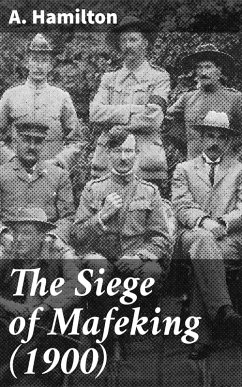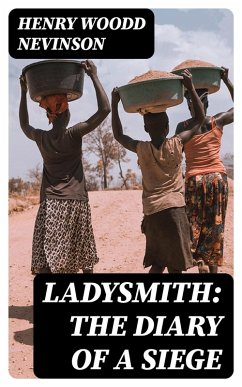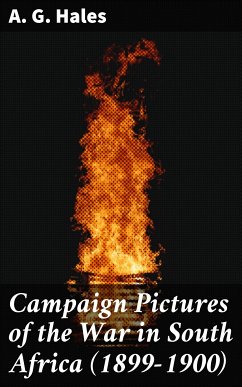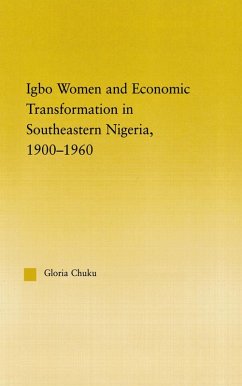
The Siege of Mafeking (1900) (eBook, ePUB)
Versandkostenfrei!
Sofort per Download lieferbar
1,99 €
inkl. MwSt.
Weitere Ausgaben:

PAYBACK Punkte
0 °P sammeln!
In "The Siege of Mafeking," A. Hamilton masterfully chronicles the harrowing events surrounding the prolonged siege of the small South African town during the Second Boer War. Written in a gripping narrative style that combines firsthand accounts and detailed military analysis, the book immerses readers in the tense atmosphere experienced by the besieged inhabitants. Hamilton's work sits within a broader literary context of war narratives from the late 19th century, reflecting the burgeoning interest in imperial conflicts and their impact on national identity, a theme that resonates throughout...
In "The Siege of Mafeking," A. Hamilton masterfully chronicles the harrowing events surrounding the prolonged siege of the small South African town during the Second Boer War. Written in a gripping narrative style that combines firsthand accounts and detailed military analysis, the book immerses readers in the tense atmosphere experienced by the besieged inhabitants. Hamilton's work sits within a broader literary context of war narratives from the late 19th century, reflecting the burgeoning interest in imperial conflicts and their impact on national identity, a theme that resonates throughout the text. A. Hamilton, having lived through the tumultuous period of the Boer War, offers a unique perspective shaped by personal experience and scholarly research. His position as a contemporary observer allows him to blend historical rigor with compelling storytelling, illuminating the complexities of colonial anxieties, heroism, and survival. His insightful reflections on the political and social dynamics of the era enhance the reader's understanding of the broader implications of the siege within the context of the British Empire. This book is a crucial read for anyone interested in military history, colonial studies, or the intricacies of human resilience under pressure. Hamilton's vivid portrayal of the Siege of Mafeking not only provides historical knowledge but also captivates with its emotional depth, making it an essential addition to the library of both scholars and general readers alike.
Dieser Download kann aus rechtlichen Gründen nur mit Rechnungsadresse in A, B, BG, CY, CZ, D, DK, EW, E, FIN, F, GR, H, IRL, I, LT, L, LR, M, NL, PL, P, R, S, SLO, SK ausgeliefert werden.













